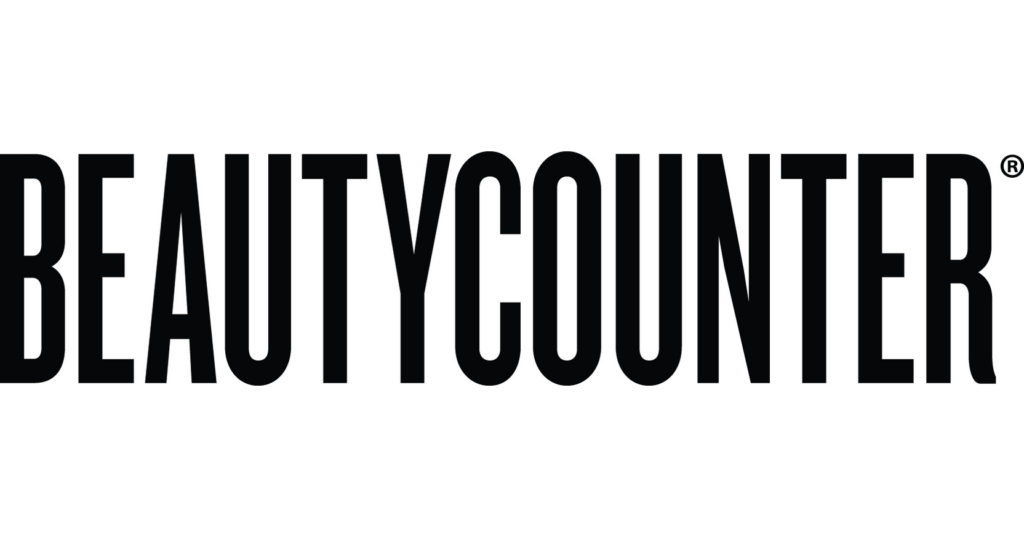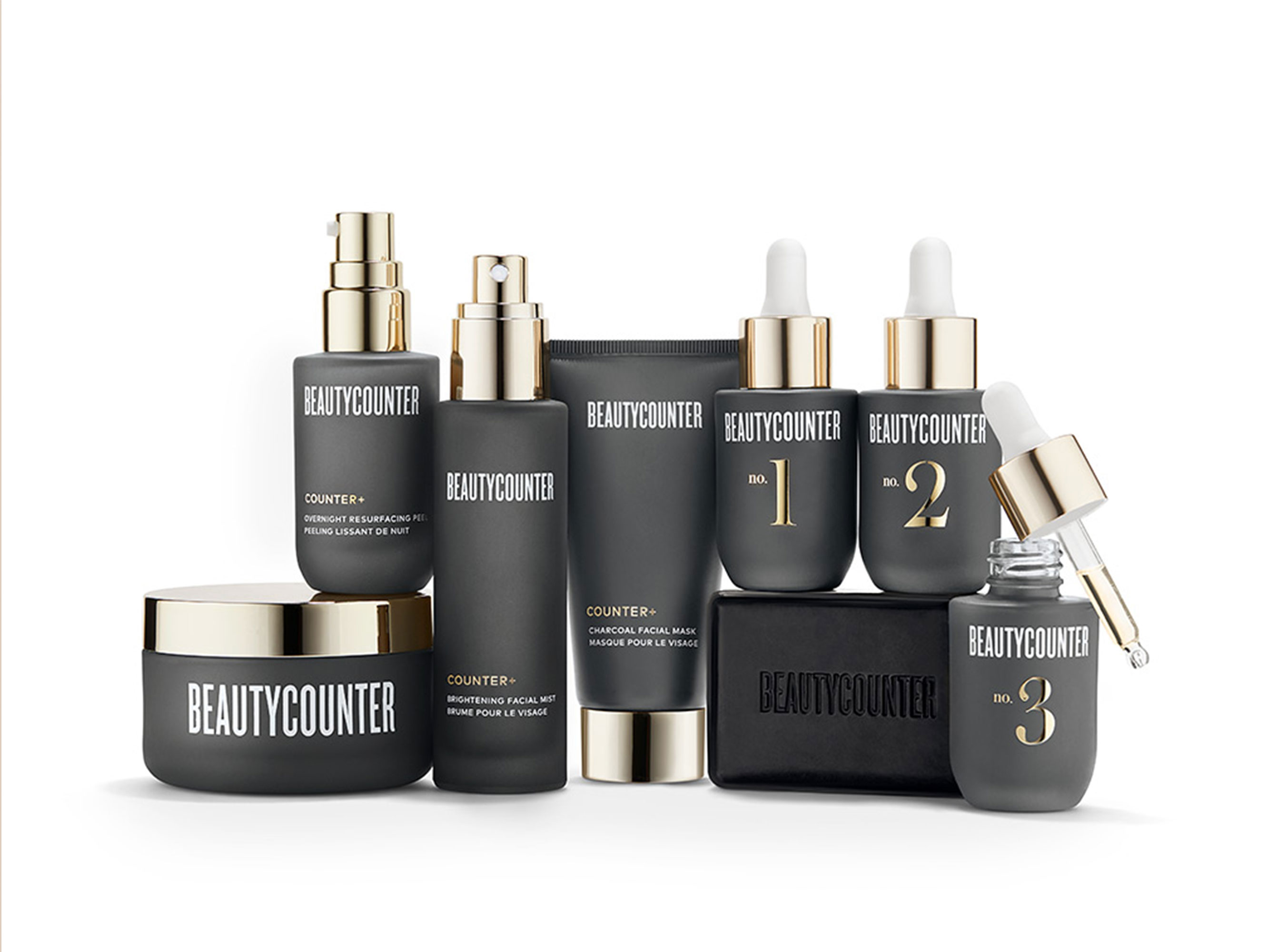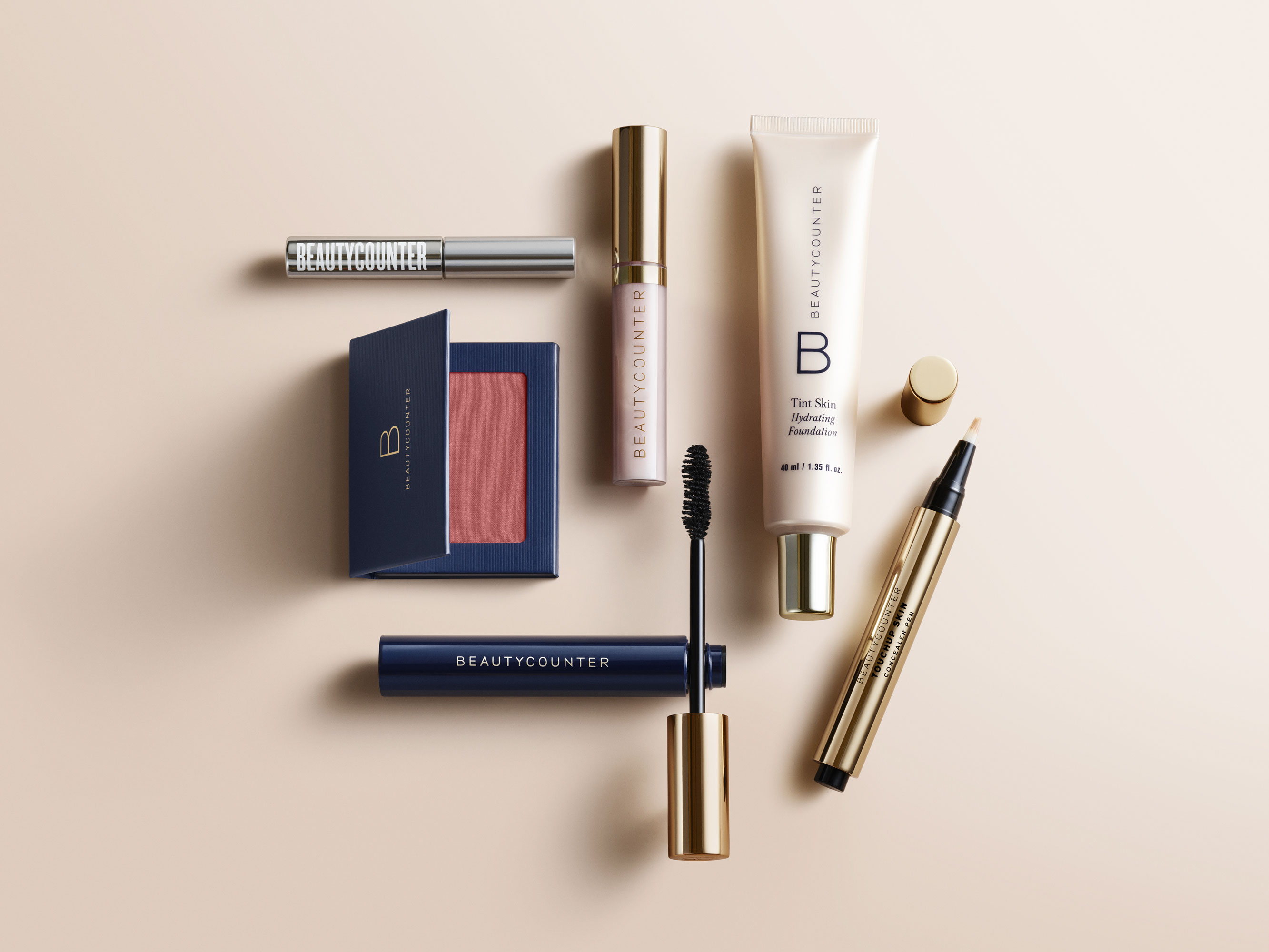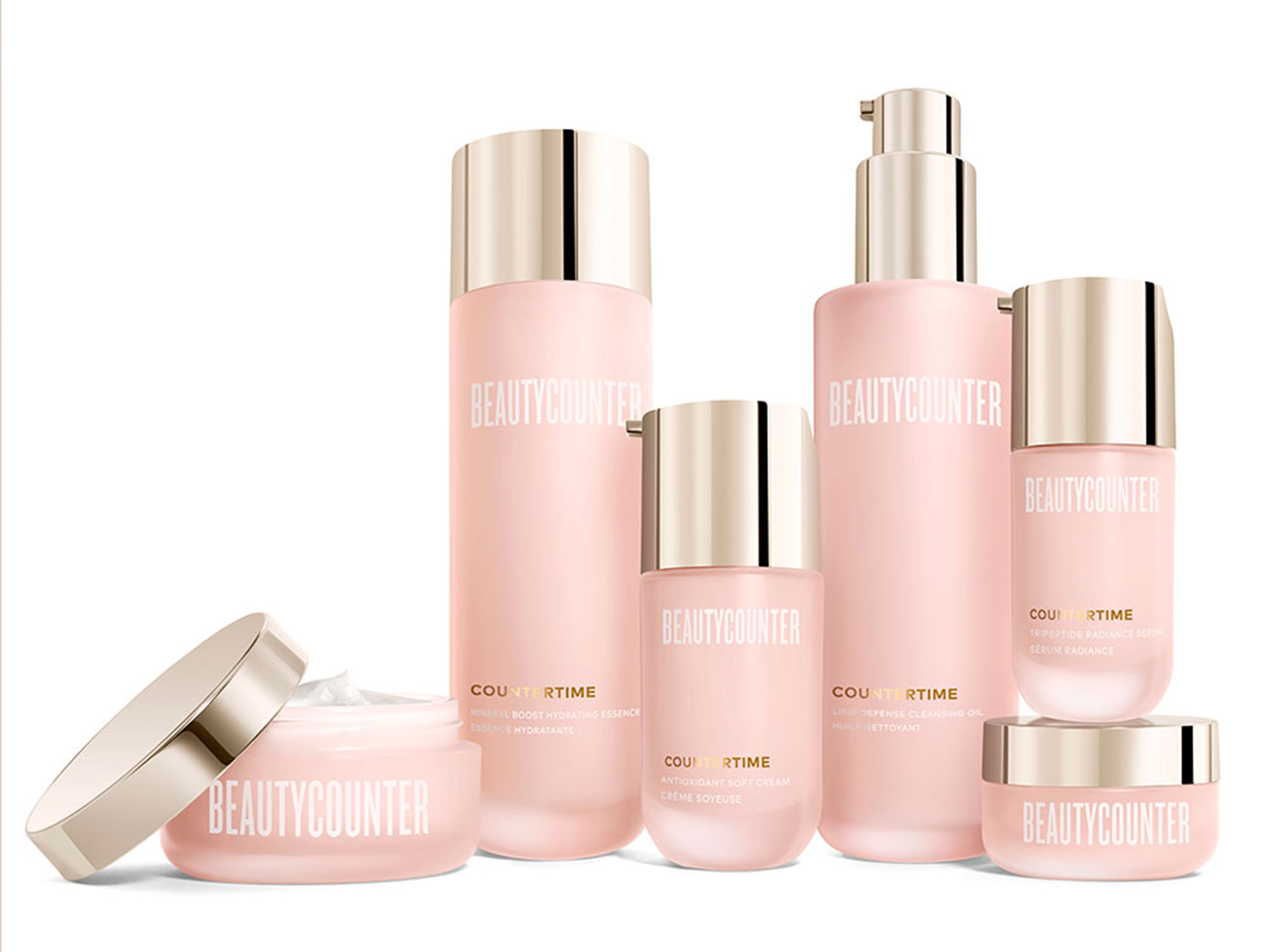Linking Sustainability to a Brand’s Core Mission with Materiality

Beautycounter partnered with Quantis to identify the key sustainability issues impacting its brand and build a strong business case for action.
Challenge

Beautycounter develops and distributes nearly 150 high-performing products across skin care, color cosmetics, advanced anti–aging, kids, baby and personal care collections. A certified B-Corp, Beautycounter was founded with a mission to make safer, more sustainable personal care products.
Entering into a new phase of growth and seeking to further amplify its work as an advocate for change in the beauty industry, Beautycounter sought to prioritize focus areas in its sustainability work. It needed a targeted approach to direct business strategy, including fiscal investment, to be implemented with strategic precision.
Beautycounter partnered with Quantis to define what sustainability topics were most relevant to the company to ensure resources would be allocated to the areas that have the potential to yield the greatest benefits.
Solutions
Materiality assessment can be a powerful tool for building a strong business case for sustainability and generating internal buy-in. Uncovering what topics are important to people within, outside and influencing a company can provide a strong argument for action and give more weight to issues that have not traditionally been considered central to the company’s mission.
Human health is at the core of Beautycounter’s mission. Human health and well-being is intrinsically linked to environmental health, and there was a strong desire for a strategy that intertwined the two. However, there was a need to demonstrate the relevance of and need for this approach. Conducting a materiality assessment allowed the sustainability team to put together a robust business case for why embedding sustainability into the brand’s operations strongly supported and was critical to its mission.
Actions
Quantis mapped Beautycounter’s key stakeholders and engaged them through surveys and interviews to gain insight on the different perspectives on the company. Synthesized with Quantis’ industry expertise and targeted research, these valuable insights fed multi-factor prioritization of identified sustainability issues. Quantis was able to highlight which topics were most relevant for different stakeholders, make recommendations related to Beautycounter’s strategic direction in areas such as sourcing/procurement, product design, operations efficiency (reducing waste), etc. as well as provide guidance on how to communicate the findings of the assessment.
Impact
Conducting a materiality assessment to uncover its most material sustainability issues enabled Beautycounter to identify its strengths and high-priority risks, gaps and opportunities. With these insights, Beautycounter was able to define what sustainability means for its brand, support decision-making and shape a value-driven approach to sustainability across its business.
Areas of expertise
Sector
Project Manager

Emmanuel Hembert
Global Cosmetics & Personal Care Lead
Latest case studies

Case Study
Accor
Quantis supported Accor, a world leading hospitality group, to develop a new methodology to ensure the accuracy of Accor’s emission calculations while simplifying both the data collection process and making it possible at hotel level.

Case Study
Manzanita Capital
Quantis supported Manzanita Capital, a private equity fund specializing in luxury and premium niche beauty companies, to guide their portfolio companies towards a more sustainable future.

Case Study
Pharma Company
Quantis supported a global pharmaceuticals company in understanding its impacts and dependencies on nature, assessing the related risks and opportunities, and evaluating the need for an overarching biodiversity strategy.



